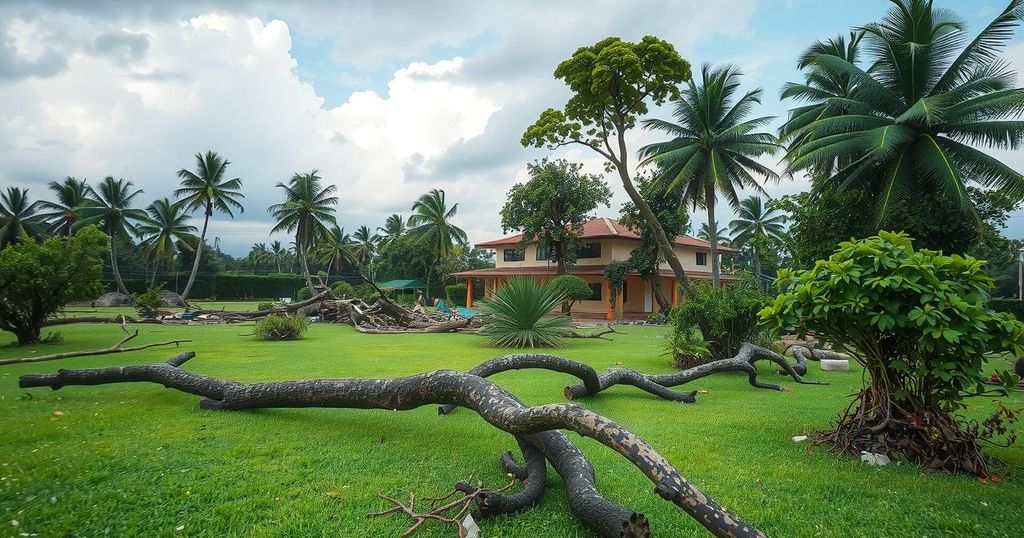Mozambique has been significantly affected by Cyclones Chido and Dikeledi, with over 737,305 people impacted. UNHCR’s efforts have reached 30,000 individuals, while an urgent US$ 7,991,000 is needed to assist an additional 362,000. Cyclone Chido made landfall on December 15, 2024, leading to severe humanitarian crises in the northern provinces.
As of 30 January 2025, Mozambique continues to grapple with the devastating aftermath of tropical cyclones Chido and Dikeledi. Cyclone Chido, which made landfall on 15 December 2024, has impacted over 737,305 individuals, especially in the provinces of Cabo Delgado and Nampula. The United Nations High Commissioner for Refugees (UNHCR) has reached 30,000 people with relief efforts, but an additional US$ 7,991,000 is required to assist 362,000 more individuals affected by the disaster.
Cyclone Chido was a formidable Category 4 storm, characterized by winds reaching up to 80 kilometers per hour, along with severe thunderstorms and over 250 mm of rainfall in 24 hours. The cyclone hit during Mozambique’s rainy season, which runs from November to March, raising the risk of further cyclones and flooding. Just weeks later, Cyclone Dikeledi caused additional harm in Nampula on 13 January, impacting over 283,000 people.
The Cyclone Chido’s impact on the population of Mozambique has highlighted significant humanitarian needs, particularly among internally displaced persons (IDPs) who were already vulnerable due to ongoing conflict. Government assessments indicate that Chido has affected 453,000 people, with Cabo Delgado and Nampula being the most severely impacted provinces, with 272,832 and 175,169 individuals affected, respectively.
This compounded crisis underscores the urgent need for increased resources and preparedness measures as the threat of further cyclones looms. Recent events emphasize the crucial need for humanitarian assistance to facilitate recovery and resilience in affected communities. The overall situation remains precarious for the population affected by these climatic catastrophes.
The historical pattern of cyclone activity in Mozambique is linked to the annual rainy season, which typically results in elevated risks of flooding and cyclonic storms from November to March. The vulnerability of communities is exacerbated by existing conflicts that have led to a significant number of internally displaced persons (IDPs). Cyclones Chido and Dikeledi have further strained these communities, necessitating immediate humanitarian intervention to address critical needs in the aftermath of these extreme weather events.
In summary, Mozambique faces a critical humanitarian crisis due to the impacts of Cyclones Chido and Dikeledi, with over 737,000 individuals affected and urgent funding requirements for effective response efforts. The compounding troubles of conflict and climate disaster have made recovery particularly challenging for IDPs and vulnerable communities. Enhanced preparedness and support initiatives are essential to mitigate the ongoing risks of further cyclonic activity and support the resilience of affected populations.
Original Source: reliefweb.int




